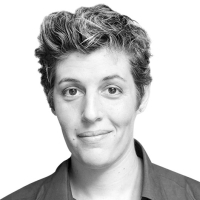During the Iowa State Fair in the lead-up to the 2012 elections, members of the grassroots Iowa Citizens for Community Improvement Action Fund bird-dogged leading Republican candidates like Mitt Romney. When Romney suggested he didn’t want to raise taxes on people, the Iowa community leaders challenged that he should raise taxes on corporations. “Corporations are people, my friend,” Romney infamously announced. The Republican candidate never lived down that incident or its message.
It is a sign of the times that the same group will be bird-dogging Republican candidates and Democratic candidate Hillary Clinton in the lead-up to the 2016 caucuses.
Although Iowa Citizens for Community Improvement’s political arm gave President Obama little to no flak during the 2012 election and enthusiastically backed him 2008, they’ve set their sights on his former Secretary of State. It’s a reflection of how dubious progressive activists are of Hillary Clinton and her ideology. But it’s also a reflection of the evolution of the populist wing of the Democratic Party, a force that will finally rear its full head—and wield its full influence—in the 2016 elections. Imagine a Tea Party of the left, but more politically popular and strategically patient.
Democratic populism did not spring spontaneously from the well of Elizabeth Warren’s consciousness. It has been brewing and building for decades. At a meeting this past weekend of the National People’s Action Fund, a national network of grassroots political organizations, almost a thousand community activists from key states across the nation gathered to plan their strategy for pushing a populist agenda in 2016. And more than perhaps ever before, it’s a strategy that will include attacking Democrats on a scale the party’s establishment clearly fears.
“There are a number of building blocks that have been put in place to create an independent political movement on the left,” George Goehl, executive director of National People’s Action Campaign, told me over the phone. “It’s been coming together over the last few years and is positioned for takeoff in 2016.”
The most recent example of this new era is in Chicago. There, Mayor Rahm Emanuel—literally a founding father of modern Democratic centrism and a golden boy of the party establishment—was forced into the city’s first-ever mayoral run-off election by a relatively unknown challenger. Emanuel spent almost four times more on the election than his populist challenger Jesus “Chuy” Garcia and still only won by 11 points. Meanwhile, although Emanuel allies set up a PAC specifically to target and defeat progressive candidates in the city’s alderman races, the grassroots populist “Reclaim Chicago” effort elected 10 progressive aldermen and actually grew the progressive caucus coming out of the election.
What happened in Chicago, says Toby Chow, chair of The People’s Lobby in the city, “sends a big statement about where politics is headed in Chicago and the rest of the country.” And it sends a big warning to the Democratic establishment.
What’s next for the grassroots groups in Chicago? In addition to continuing to run and elect their own progressive candidates down-ballot, The People’s Lobby and others are planning trips to Iowa to question Republicans and Democrats.
These grassroots organizations are the same groups that put populism on the political agenda in the first place, organizing against predatory lending and big bank bailouts and pushing for affordable housing and an increase in the minimum wage. “The movement was looking for leadership,” says Goehl, acknowledging Elizabeth Warren as an important figurehead. “Warren stands for a number of ideas, but not all of them.”
And now that these groups have helped change the national conversation, they want action. “People don’t see any candidate who is going to go toe to toe with corporate power and standing up for everyday people. They don’t see a candidate who is saying what they’ll do about structural racism in America,” Goehl says.
It’s great that candidates from Rubio to Paul to Clinton are talking about inequality. “Now what are they going to do about it,” asks Goehl, “beyond making our lives a little less worse?” Inequality, the power of the very rich over everyone else, the abuse of corporate power—these are massive problems that demand massive reforms. And Goehl’s network will be pressing all the candidates—including or perhaps especially the Wall Street-cozy Hillary Clinton—to make clear to voters what they believe and which side they’re on.
Last week, as low-wage workers protested across the United States demanding a $15-an-hour wage, Hillary Clinton tweeted a message suggesting she supports the Fight for $15 movement’s demands. Yet it was Men’s Warehouse founder and former CEO George Zimmer who commented regarding the protests, “I think that capitalism needs some modifications if it’s going to remain sustainable.”
Goehl laughed at this. “It’s a problem when the Men’s Warehouse guy is more out in front than the supposed Democratic front-runner,” Goehl said.
The mood of times and the economic realities the nation faces call for a president who has a populist plan, not just a plan to appease populists. And if Hillary Clinton doesn’t come to that realization on her own, grassroots organizing groups are finally poised to forcefully yank Clinton in the right—which is to say left—direction.




